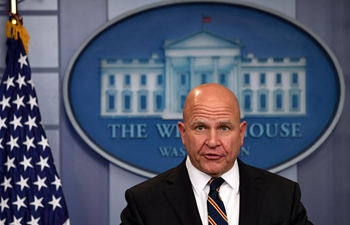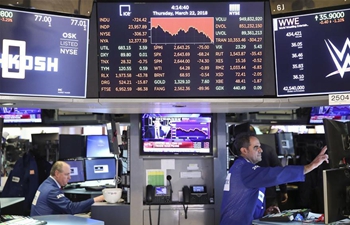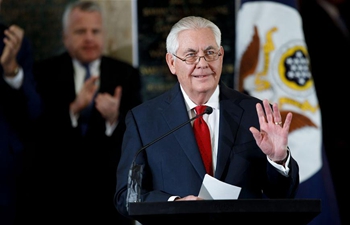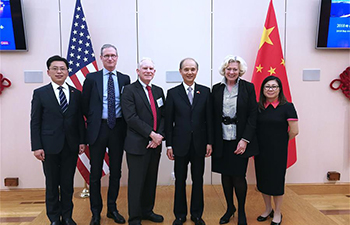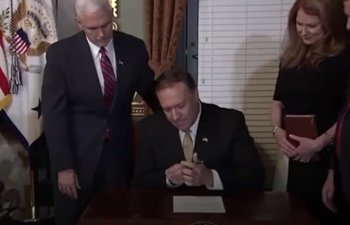WASHINGTON, March 22 (Xinhua) -- Despite warnings from business groups and trade experts, U.S. President Donald Trump on Thursday signed a presidential memorandum that could impose tariffs on up to 60 billion U.S. dollars of imports from China, the latest unilateral move that poses a threat to global trade.
It follows Trump's recent tariff plan on steel and aluminum imports and January's tariffs levied on imported solar panels and washing machines.
Those punitive measures are all based on outdated U.S. trade laws put in place during the Cold War era to protect domestic industries, but they have been rarely used since the launch of the World Trade Organization (WTO) in 1995.
Trump and his trade advisor Robert Lighthizer, former deputy U.S. Trade Representative in the Ronald Reagan administration, might wish to re-live the trade battles against Western Europe and Japan in the 1970s and 1980s.
However, global trade and supply chains have tremendously changed over the past three decades. Products from one country usually incorporate components from others, as coordinating international production is cheaper and more efficient.
Therefore, raising tariffs on Chinese goods is just like using 20th- or even 19th-century tools to tackle problems of the 21st-century, an age of globalization. It would disturb the interconnected supply chain of many industries and increase costs for American businesses and consumers.
Just think about Apple's popular iPhones, which combine American design with hardware from international suppliers and Chinese assembly lines. Global production nowadays has eliminated national boundaries.
While counting as Chinese exports to the United States, iPhones are produced by American multinational companies operating in China.
That's why 45 U.S. trade associations, representing retail, technology, agriculture and other consumer-product industries, recently urged the Trump White House not to move forward with tariffs on Chinese imports.
"America First" and unilateralism seems to be the mantra of Trump's trade policy. Unfortunately, with a zero-sum mentality, it is hard to see how the United States can negotiate better trade deals with other countries.
What is worrisome is that the United States, the world's largest economy, begins taking unilateral actions rather than resolving trade disputes through the WTO.
If the United States starts to ignore WTO rules or honor its obligations selectively, other countries could follow suit, putting the rule-based global trading system at risk. The result will be a global trade war. As former U.S. trade representative Carla Hills put it, "without the WTO it would be the law of the jungle."
In Trump's eyes, China seems to be taking advantage of the United States on trade. But the truth is that the China-U.S. trade relations are reciprocal and broadly complementary. Trade and investment between China and the United States supports about 2.6 million American jobs, according to the U.S.-China Business Council.
The best way to get the good deals that Trump seeks is to pursue a more open trade policy with China. Both countries should work together to further open their respective markets to each other. Trade wars are for losers.







